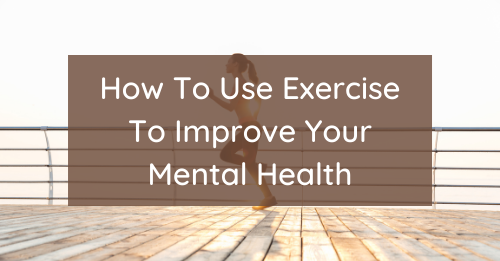The benefits of exercise on mental health are well-documented in studies from all over the world. Exercise is also thought to have benefits for people suffering from anxiety and depression to eating disorders, schizophrenia, dementia, grief and relationship problems — basically, anyone can enjoy some mental benefits from exercise alongside the physical.
Exercise and Mental Health
As you exercise, your brain releases hormones like serotonin, dopamine and other endorphins that regulate your mood and help you think more positively. These hormones also result in:
- Improved self-esteem: Even ten minutes of exercise can help you feel healthier, stronger and more confident in your body.
- Increased energy: When your body starts moving, it wants to keep moving, and all those feel-good hormones help you stay motivated. And as you get used to exercising, you’ll build up stamina and be able to handle longer and harder workouts.
- Reduction of stress: Exercise can help you clear your mind and focus on something outside of it — your body. It’s for this same reason that exercise can reduce feelings of depression and anxiety, as well as force your mind to move past trauma responses commonly found in people with post-traumatic stress disorder.
Tips on Getting Started With Exercise
There’s no right way to get started with exercise, but these tips might help you if you’re not sure how to begin:
- Start small: Making large commitments like working out for an hour every day makes you more likely to quit. Instead, start with a five- or ten-minute walk in the morning, and increase your activity as you become comfortable doing so.
- Find accountability: For many people, working out with someone else or a group can help hold them accountable in their exercise regimen. It also fosters a sense of community and belonging, which may help you feel less alone.
- Consider nontraditional forms of exercise: While yoga, running, cycling and exercise programs are great, the best exercises for mental health can be those you don’t consider exercise. Gardening, completing home improvement projects and walking around the mall can help improve your mental wellbeing, too.
- Make goals: Find a way to measure your progress, whether using a fitness tracker or writing it down in a notebook. Seeing how you’re improving as you get stronger can motivate you to continue your exercise journey. Reward yourself for accomplishing goals! Let yourself have a self-care night or buy a small present, so you have something to look forward to.
Learn More About Your Health With 7 Summit Pathways
In all of our addiction treatment options, 7 Summit Pathways prioritizes the health of our patients mentally, spiritually and physically. As mental health issues often coincide with substance abuse disorders, maintaining and improving physical health can improve their condition, allowing patients to focus more fully on their recovery. You can learn more about our philosophy and treatment options by contacting us and speaking with one of our Interventional Specialists.

